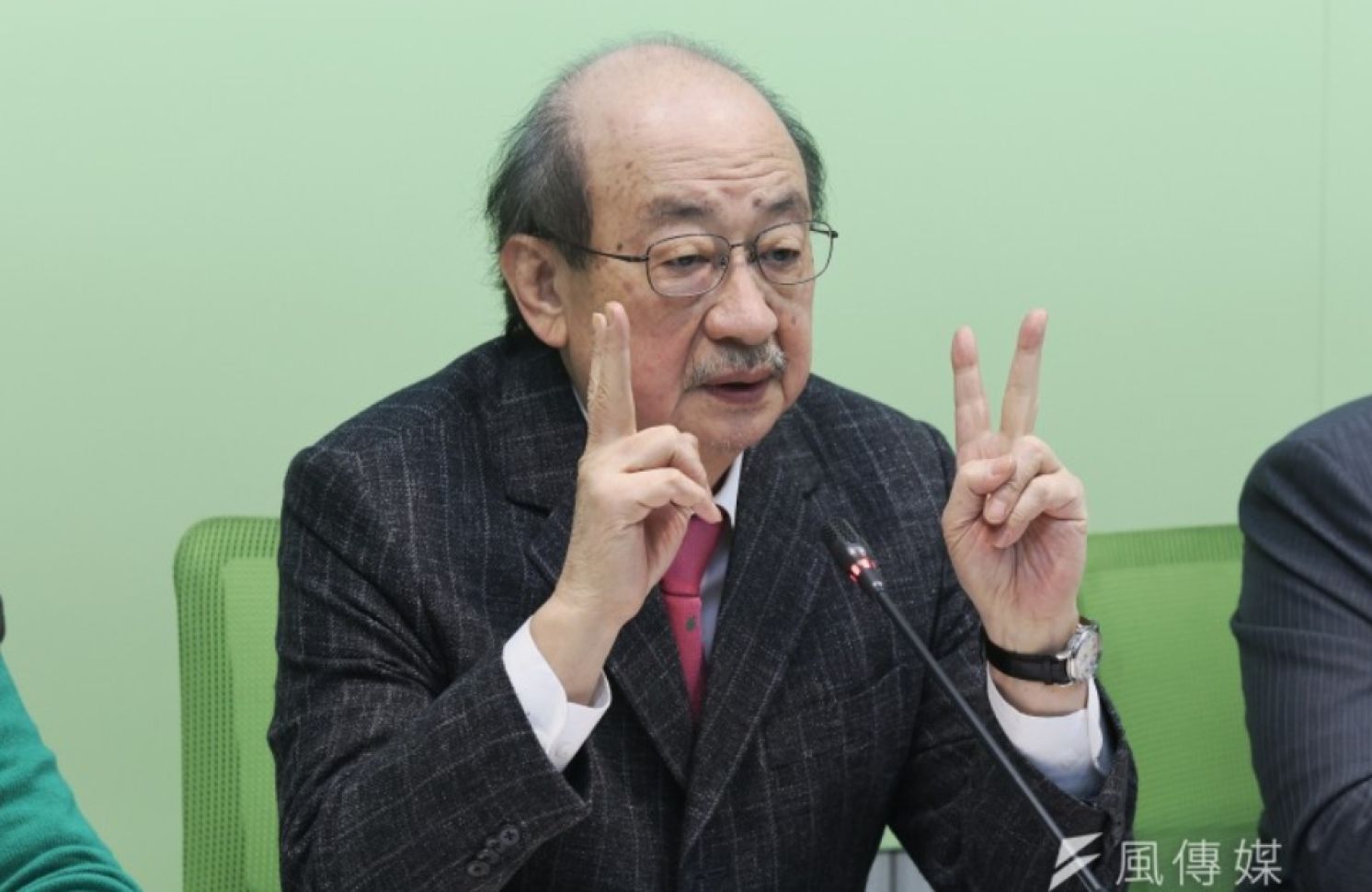
DPP Causes Breakdown of Budget Negotiations for Political Purposes
The Storm Media, January 17, 2025
Review of the central government’s annual general budget by the Legislative Yuan is approaching the final stretch. The total budget this year, reaching a historic high of nearly NT$3.2 trillion(about US$97.2 billion), faces an unprecedented proposed cut and freeze of over NT$320 billion (about US$9.7 billion). Premier Cho Jung-tai has personally stepped in, holding a press conference to emphasize that such “unreasonable” budget cuts would lead to a “weakened national strength.” Meanwhile, Legislator Ker Chien-ming, whip of the Democratic Progressive Party (DPP) caucus of the Legislative Yuan, has employed filibustering tactics during two consecutive days of negotiations with opposition parties, leading to prolonged debates and heated exchanges, yet with no conclusion reached. With time running out, it seems increasingly unlikely that the budget will pass its third reading without facing what the administration calls “unreasonable cuts.”
Budget Grew NT$300 Billion under President Ma But Trillion under President Tsai
To be fair, the ruling and opposition parties each stand by their rationale, but their arguments remain parallel lines that fail to intersect. For the opposition Kuomintang (KMT) and Taiwan People’s Party (TPP), the government’s expansion of its annual operations and budget is deemed “unreasonable.” They argue that strict oversight by the Legislative Yuan is the only way to maintain “reasonability.” Looking at simple figures, in 2008, President Chen Shui-bian’s final year in office, the government’s annual general budget was over NT$1.6 trillion (about US$48.6 billion). Eight years later in 2016, the last year of President Ma Ying-jeou’s tenure, the annual budget had risen to NT$1.9 trillion (about US$57.7 billion), an increase of NT$300 billion (about US$9.1 billion). Another eight years later in 2024, the final year of President Tsai Ing-wen’s tenure, the annual budget soared to NT$2.9 trillion (about US$88.1 billion), a staggering increase of NT$1 trillion (about US$30.3 billion). Following the first year of President Lai Ching-te’s administration, the budget grew by another NT$300 billion (about US$9.1 billion) compared to the previous year. If this trend continues, then President Lai’s budget expansion during his first term could surpass his predecessor’s record.
This rapid growth has led the TPP to question: “If Tsai’s budget was sufficient for governance, why can’t President Lai manage the country without expanding it further?”
Tsai’s Austerity Statements Come Back to Haunt President Lai
Tsai’s past remarks have now become a thorn in President Lai’s side. In a 2012 Facebook post, Tsai wrote: “I believe all government agencies should cut their budgets by 20 percent. A drastic reduction is necessary. I’ve been a minister; I know that even if budgets are cut by 10%, the government and its agencies will still function just fine.” This post is now cited by the TPP to justify its proposal to freeze 10 percent of the budget. However, once in power, President Tsai significantly expanded the government’s budget, leveraging her parliamentary majority to sideline opposition attempts at rigorous scrutiny. In contrast, the Lai administration, despite lacking a legislative majority, seeks substantial budget increases while allowing DPP members to attack opposition parties with accusations of “red-tagging.” This confrontational approach undermines the chances of fair negotiations.
The use of filibustering during negotiations—intended to obstruct legislative progress—is unprecedented and suggests only one goal: forcing a breakdown in negotiations.
Legislator Ker’s Calculated Obstruction
With the legislative session nearing its end, Legislator Ker’s tactics of sabotaging negotiations appear to serve strategic purpose. The first is overwhelming opposition efforts. The opposition’s 3,200-plus proposals to cut or freeze budgets for various agencies overwhelm the DPP, prompting the latter to reject them wholesale.
The second is minimizing political fallout. By stalling negotiations, the DPP ensures that a rejected budget proposal causes minimal disruption. Key expenditures like personnel costs and ongoing programs remain unaffected, and even agencies facing significant cuts—such as the Mainland Affairs Council or the NCC—continue to operate.
The third is shifting the narrative. A failed budget proposal provides the DPP with ammunition to frame the opposition as obstructionist, thereby fostering public support for a “grand recall” campaign.
Legislator Ker’s strategy appears effective, as government agencies lament potential impacts, and even institutions like Academia Sinica warn of consequences for the wages of 3,000 contract workers. The DPP uses memes to criticize opposition legislators, while the TPP defends its proposals as reasonable, accusing the DPP of spreading misinformation. Meanwhile, the KMT convenes emergency meetings to streamline its proposals, reducing the number of amendments from thousands to 200 in a bid to resolve the impasse before the deadline.
Unchecked Government Thrives While People Suffer
Regardless of the budget’s final outcome, the Lai administration and Cho cabinet’s disregard for fiscal discipline is troubling. A bloated government budget is far from normal, especially when citizens’ wages stagnate while the government feasts lavishly. Rising electricity prices and inflation burden the public, while struggling industries—media, arts, agriculture, and fisheries—are left dependent on government subsidies. Such reliance is unsustainable for healthy development. Critics of budget scrutiny might ask themselves: why should the government control the only available “cheese”?
As a side note, all frozen budgets in previous years were eventually unfrozen, rendering concerns about their impact unnecessary. Instead, the real question to ponder is: Is a government that extravagantly wastes taxpayers’ money really what you want?